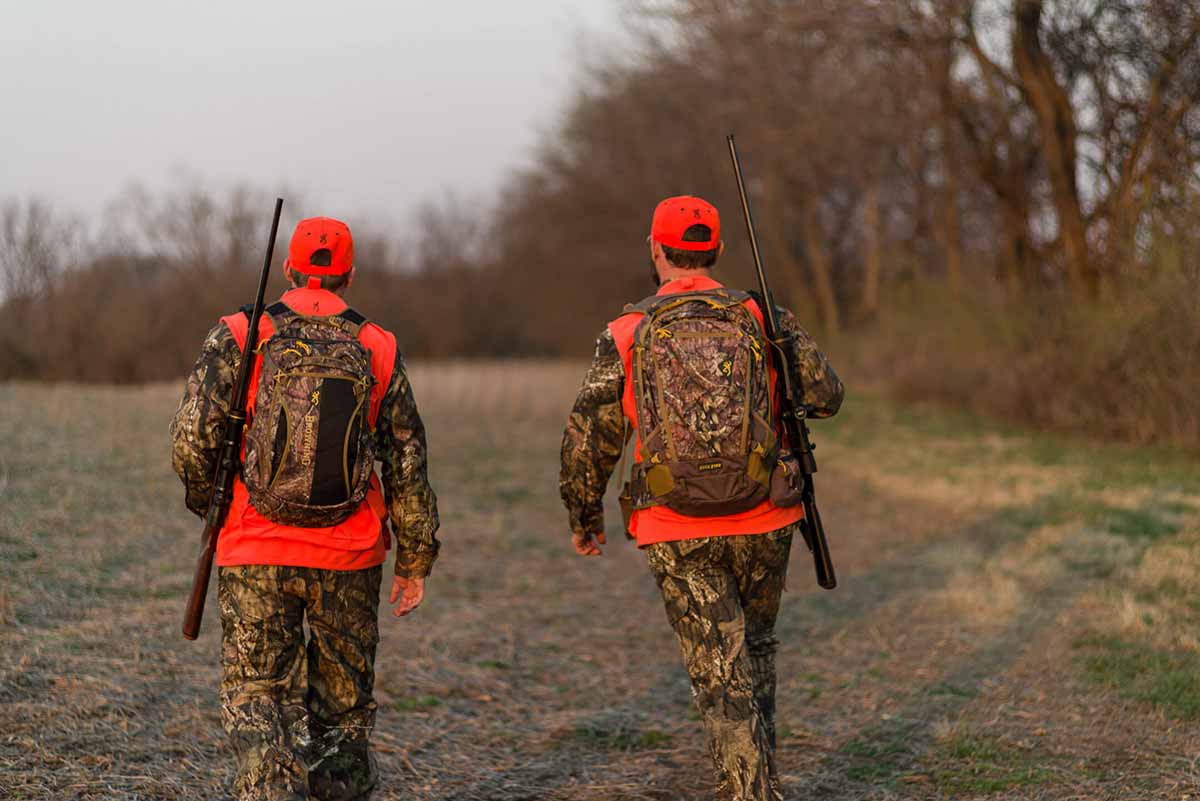
Hunting license sales help drive wildlife funding to states.
Photo: Howard Communications.
The Pennsylvania Game Commission has been saying for years that it needs more money.
It’s had no luck getting it. State lawmakers have refused to increase hunting and trapping license fees since 1999.
Now, there’s this.
The commission is actually losing going to lose money – about $700,000 a year to start, though that‘s expected to increase – because of a change in federal regulations.
Here’s what’s happening.
The U.S. Fish and Wildlife Service collects an excise tax on firearms, ammunition and a few other items. It’s paid back to the states based on two things: land mass and number of base hunting licenses sold.
Called the Pittman-Robertson program, it delivered $780 million to states in 2016-17. The Game Commission’s share of that – third highest in the country, behind only payouts to California and Alaska – amounted to $27.9 million.
The fund is undergoing changes, some of them designed to account for falling hunter numbers.
One change, though, will impact the bottom line right away, said Dot Derr, chief of the commission’s bureau of administrative services.
Under current Fish and Wildlife Service rules, wildlife agencies like the commission get paid for every base license – think a general back tag – so long as the agency nets at least $1 in revenue.
Fish and Wildlife wants to raise that standard. To qualify for reimbursement going forward, licenses will have to earn states $2 in net revenue.
That’s going to impact the commission in two ways.
First, there are eight base licenses (http://www.pgc.pa.gov/HuntTrap/LicensesandPermits/Pages/default.aspx) right now that cost $2.90: for resident military, national guard, reserves, prisoner of war, disabled veteran, two categories of mentored youth and disabled veteran furtaker.
The commission gets only $1 of the $2.90 each sells for, though. One dollar goes to the issuing agent selling the license, while 90 cents goes to the company that operates the automated license sales system.
The commission sold 36,224 licenses across all those categories in 2016, the most recent year for which totals are available.
Unless lawmakers raise those license fees by another dollar, the commission will lose almost $675,000 a year starting this year.
Second, the change also impacts senior lifetime licenses sold to those age 89 and older.
Right now, with the $1 standard for net revenue, the commission can sell a resident senior lifetime license for $51.90 and – even minus the one-time issuing agent and transaction fees – count that license for 50 years.
Under the new rule, with the $2 net revenue threshold, it will only be able to count them for 25 years. That’s going to cost the agency another $20,000 or so a year.
And that’s for starters.
The commission had 1,066 senior lifetime license holders in 2016.
“That number is only going to grow,” Derr said.
It’s expected the number of older hunters falling into that age category will increase by 550 to 650 each year.
Add it all up and the commission will likely lose $695,000 this year, and then lose more money each year going forward, Derr said.
The change is not yet official. Federal officials, who have been working on the change for about two years, have not yet finalized it, Derr said.
But that appears a formality.
The changeover is “at the very last steps,” she said. The commission, together with other wildlife agencies around the region, have made known their concerns, she added.
“I just don’t think it’s going to have much of an impact,” Derr said.
The question, then, is how to account for the losses.
“We haven’t come up with a good solution as of yet,” said executive director Bryan Burhans.
Commission president Tim Layton of Somerset County pointed out that the commission stands to lose more money, too. There are bills before the state legislature right now that would lower to $1 the cost of hunting licenses for volunteer hunter education instructors and others.
Those licenses would fail to qualify for federal reimbursement under the new rules, he said.
“That might be an issue we need to talk to the legislature about and let them know we’re all for what they want to do, as long as we can get that funding. Either way, it’s a loss of revenue,” Layton said. “But we don’t want it to be a double whammy.”
Another option for maintaining wildlife funding?
Game Commissioner Jim Daley of Butler County had another idea.
“Is there any way we could bargain with whoever is getting those issuing fees and transaction fees so they don’t get them on the $2.90 licenses?” he asked.
That would make those licenses eligible for federal reimbursement, he noted.
Daley said he’d be willing to pay them higher fees on other licenses to make up the difference.
Staff, though, pointed out that state lawmakers set fees. The commission can’t not pay them for some licenses or pay higher fees on others.
So in the meantime, the commission is looking to see if there are things it can do, or ways it can re-classify income, to stay eligible for funding, or if it just has to prepare for less, said Dot Derr.
“We’re just really brainstorming about it right now,” she said.
Want to see more? Check us out on Facebook, Twitter and Instagram.








